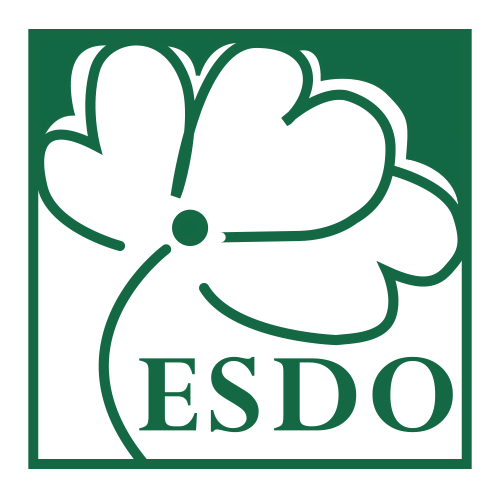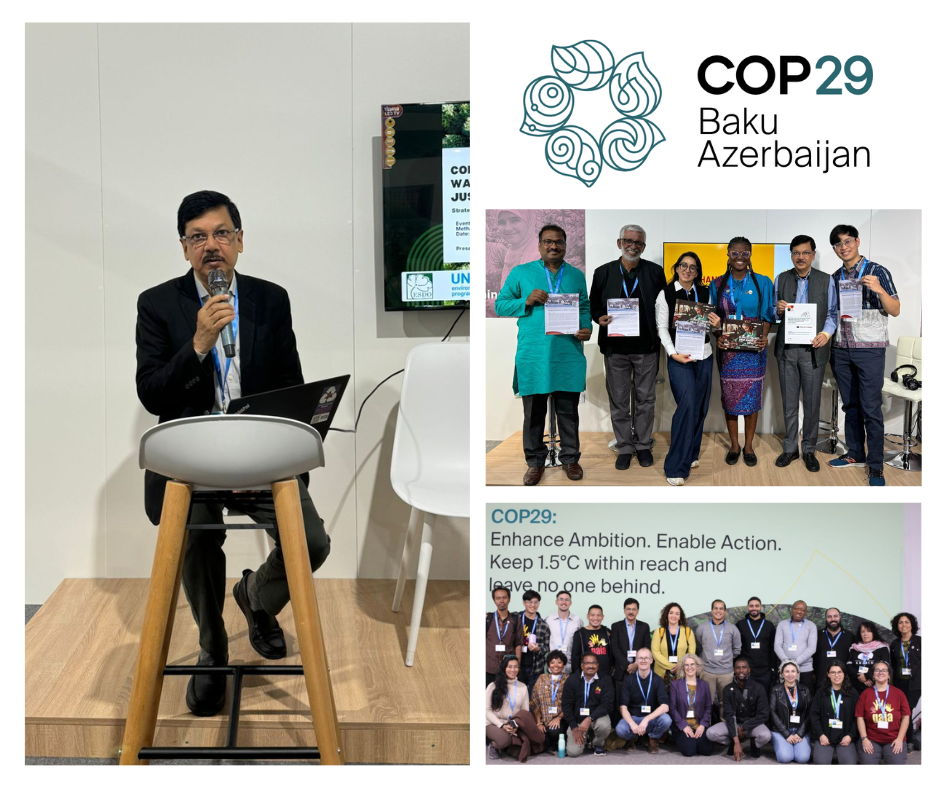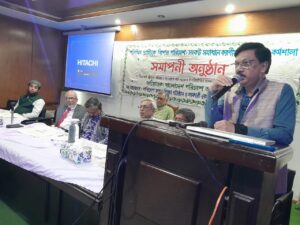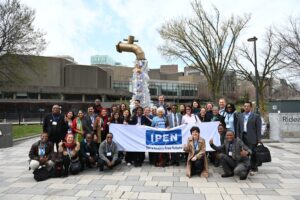The 29th UN Climate Change Conference (COP29), held in Baku, Azerbaijan, from November 11 to 22, 2024, addressed critical concerns such as methane emissions, climate financing, loss and damage, and nature-based solutions. Its primary purpose was to accelerate the Paris Agreement’s implementation. The conference emphasized the role of non-state actors and community-led efforts in meeting climate goals, as well as the necessity for equitable climate funding, particularly for developing nations. The Environment and Social Development Organization (ESDO), which represents Bangladesh, was instrumental in campaigning for community-driven methane reduction and waste management strategies. This summary discusses COP29’s important results, specifically methane reduction measures, waste management integration, and the challenges of scaling up climate financing.
At COP29, the Global Methane Pledge was renewed, agreeing to a 20% reduction in methane emissions by 2030, with a focus on agriculture and waste management. Key measures included adopting national methane reduction programs, improving waste management with technology such as Carbon Mapper, and mobilizing climate money, particularly in developing nations. The Loss and Damage Fund was formed to assist vulnerable nations, but governance and financial issues persist. COP29 also emphasized the need for additional climate finance to address methane emissions, asking wealthier nations to keep their promises and invest in green technologies and renewable energy. The discussions focused on building resilience in vulnerable nations, expanding carbon markets, and encouraging nature-based solutions like reforestation. Social equality in climate policies was emphasized, ensuring vulnerable populations have access to the necessary technology, finance, and capacity-building for a just transition.
At COP29, the Environment and Social Development Organization (ESDO) was instrumental in pushing community-driven solutions to methane reduction, particularly through waste management programs. Dr. Shahriar Hossain, Secretary-General of ESDO, represented Bangladesh at the High-Level Event on Methane Mitigation from Organic Waste (ROW), highlighting the importance of incorporating community-based solutions into national climate policies to ensure an equitable transition. ESDO hosted a side session titled “Community-Led Best Practices for Fast Action on Waste Methane Reduction and a Just Transition,” which highlighted successful grassroots projects such as Kerala’s agroecology methods for methane reduction and Rangpur’s community-led organic farming activities. ESDO also released two major publications: a detailed report on methane emissions in Bangladesh, which advocates for organic waste recycling, and a policy brief proposing the inclusion of methane mitigation in global climate policies and the allocation of greater climate money to grassroots programs. The organization advocated for increased funding for methane reduction programs, particularly in low-income countries, and stressed the significance of integrating informal waste pickers into official waste systems to improve waste management efforts.
At COP29, several significant difficulties and missed opportunities were obvious. The Global Methane Pledge was reinforced without precise timetables, leaving countries uncertain about how and when they will meet the 20% reduction target by 2030. Methane emissions from agriculture, particularly from cattle and rice production, received insufficient attention, resulting in a missed chance to target one of the leading causes of global warming. Despite the creation of the Loss and Damage Fund, financial support for methane mitigation has been insufficient, particularly for developing countries in need of significant investments. The role of informal trash workers, such as rubbish pickers, was disregarded, potentially marginalizing a crucial workforce in methane reduction efforts. Furthermore, while technologies such as Carbon Mapper provided some insights into methane monitoring, their use in low-resource contexts such as Bangladesh was not fully investigated. Finally, there has been little progress in promoting international cooperation, with few adapted policies and shared technologies for emerging nations facing specific obstacles.
COP29 represented a blend of progress and missed opportunities. The expansion of the Global Methane Pledge and the establishment of the Loss and Damage Fund are significant strides forward, but the lack of clear implementation deadlines and inadequate attention to agricultural methane remain key roadblocks. The ESDO’s contributions, which include lobbying for community-led solutions and climate finance for methane reduction, emphasize the necessity of incorporating grassroots actions into national and global climate strategies. Moving forward, converting COP29 pledges into tangible, inclusive efforts will be vital to meeting global climate targets. ESDO’s leadership shows the importance of community-driven efforts in generating long-term change.



